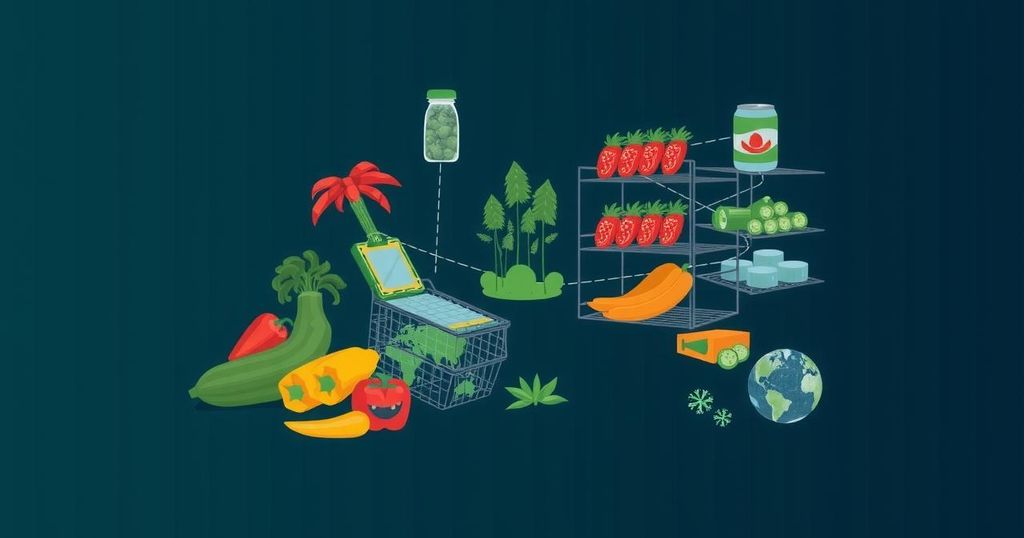Rising grocery prices have profoundly influenced global political outcomes, notably benefiting the Republican party in the U.S. and leading to losses for incumbents in India and Japan. The article emphasizes how climate change and monopolistic practices in food production exacerbate inflation, highlighting the need for new economic policies that address practical realities rather than conventional models. It suggests wealth taxes and localizing supply systems as proactive measures to stabilize essential goods’ prices.
Recent elections have underscored the impact of soaring grocery prices and inflation on political dynamics in various countries. In the United States, a significant correlation emerged between the experience of increasing essential prices and the success of the Republican party, with approximately 75% of Republican voters reporting financial hardship compared to only 25% of Democrats. Similar trends were observed in India and Japan, where rising food prices led to substantial political losses for incumbents. The global scale of inflation continues to escalate, influenced by climate change, geopolitical tensions, and the failure of economic institutions to effectively address these challenges. Essential goods and food prices have spiked dramatically worldwide, with olive oil prices in British supermarkets rising by as much as 90%, and butter escalating 80% across Europe. Indeed, worsening environmental conditions, such as droughts and extreme weather events, have severely disrupted agricultural productivity, contributing to these inflationary pressures. Economic indicators often fail to reflect the genuine experiences of individuals struggling with rising costs, particularly those from lower-income households. The disconnection between statistical inflation figures and individual economic realities has led to a misalignment of policy responses. The prevailing economic tools, primarily interest rate adjustments, have proven inadequate in addressing the root causes of inflation driven by supply chain shocks and climatic crises. The monopolistic control of global food markets has further exacerbated this crisis, as large agribusinesses reported unprecedented profits during this period, contrasting sharply with the struggles of ordinary consumers. It is essential to reassess economic strategies to prioritize price stability and equitable distribution of resources. To address these pervasive issues, three strategic approaches are necessary: first, the implementation of wealth taxes to redistribute resources from wealthy profiteers; second, the reassessment of traditional economic approaches that rely solely on interest rate adjustments; and third, the localization of food production and validation of sustainability practices within farming communities. This holistic approach can foster resilience against future economic shocks and help secure equitable access to essential goods for all individuals.
The article discusses the political repercussions of rising grocery prices and the broader implications of inflation exacerbated by climate change on global economies. It highlights recent electoral outcomes in various countries, showing that inflation and the cost of essentials have become pivotal issues influencing voter sentiment and political allegiances. The role of climate change in exacerbating food prices is also addressed, alongside the limitations of conventional economic responses to inflation.
In summary, soaring grocery prices and inflation have significant political implications globally, illustrating the urgent need for a reevaluation of current economic policies. The existing disconnect between inflated prices and actual household experiences emphasizes the necessity for targeted interventions. By redistributing wealth, reconsidering traditional inflation responses, and enhancing the resilience of supply systems, societies can begin to address the root causes of this economic crisis and safeguard the wellbeing of their citizens.
Original Source: www.theguardian.com







